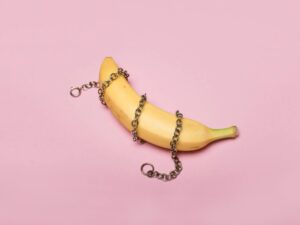TW: This article has references to instances of violence and sexual assault which you may find disturbing.
Since the pandemic’s inception, an estimated 736 million women have been subjected to physical violence internationally. Statistics show it is mostly by their intimate partners or husbands. In light of this crisis – and yes, it cannot be referred to as anything but – the international organisation UN Women launched a Shadow Pandemic awareness campaign to end sexual violence against women and girls (VAMG). Scheduled from 25 November to 10 December 2021, the theme was coined “Orange the world: End violence against women now!”. Yet women globally are still suffering.
Of course, sexism and misogyny is at the heart of VAMG. The word ‘sexism’ here means economic, political and social discrimination against women. The Taliban’s patriarchal ethics, for example, clearly encapsulates this term. According to Human Rights Watch, about 87% of Afghan women and girls experience abuse in their lifetime. After US military withdrawal from Afghanistan, they were told to stay at home, banned from work and excluded from higher education. No female politician sits in their parliament to speak up for the voiceless or the marginalised. Now, many teenage girls from poor families are at increased risk of forced marriage. Meanwhile, women’s rights activists who battle against this arbitrary deprivation of liberty are being hunted down and brutally murdered. Afghanistan’s women are living within a culture of brutal oppression.
Misogyny — a culturally ingrained disdain for women who subvert traditions and notions of femininity — fuels this such violence against women. This visceral hatred doesn’t exist only in the Taliban regime. It is everywhere. Too often implicit biases and social expectations through the media perpetuate women’s self-harm and the wider gender gap.

Many Thai soap operas such as Wife on Duty and Defendant of Love reinforce old-fashioned male chauvinism and normalises rape culture. They include scenes of inflicting sexual violence against female characters such as forced sex, slapping and beating, kidnapping and detainment. Yet these interactions are falsely depicted as either romances or legitimised punishments instead of the acts of assault that they are.
Meanwhile, western entertainment is laced with internalised misogyny. Only recently did I notice a joke about my favourite American pop star Taylor Swift in Netflix’s Ginny and Georgia that reminded me of its prevalence. Ginny Miller, played by a biracial actress Antonia Gentry, told her mother that “you go through men faster than Taylor Swift”. I found it both funny and true, since Swift abruptly split with Calvin Harris and again dumped Tom Hiddleston. When in fact, there is absolutely nothing wrong with Taylor moving on ‘fast’ or dating new guys. Admittedly, I was not aware of this slut-shaming until Gentry faced backlash from some Swift fans and got bullied for her skin colour. Misogyny wins when women tear down other women. At this point, Swift should publicly call on her fans to stop their misogynist and racist attacks. There is no excuse for it.
So many female celebrities are still targeted with online hate speech and body-shaming. Don’t the haters EVER get tired? Apparently, misogyny never sleeps.
The lead actress from the hit TV series Nakee, Natapohn “Taew” Tameeruks went from a branded sweetheart to ‘Nakee lokkhrap’ (or a snake shedding its skin) after having a new richer boyfriend and rocking a new bold, sexy look. It goes without saying that no woman should be shamed for posting photos of herself in a bathing suit at the beach, or breaking up with a good guy. It doesn’t matter how well he has treated her and how many years they have been together. If she was not happy with her partner, leaving him is the right decision to make.
Like Swift, Taew simply followed her free will and emancipated herself from her long-held ‘good girl’ image. This good girl trope is yet another gender stereotype that convince women to self-censor themselves in the media.
And if that wasn’t enough, Taew’s workout routine is routinely sensationalised as ‘insane weight loss’ and ‘skinny obsession’ rather than a passion for good health and inner strength. Why can’t a woman just work out in peace?
Let’s not also forget the social stigma surrounding weight. Fat or thin shaming can have irreparable damage, yet it’s ingrained in our every-day biases. It is time we scrap this ‘ideal’ body type trope. It us time we embrace the beauty of all body types.
But above all, we all have a role to play in raising awareness on the human rights crisis that is gender-based violence. This goes for male victims as much as it does female.












